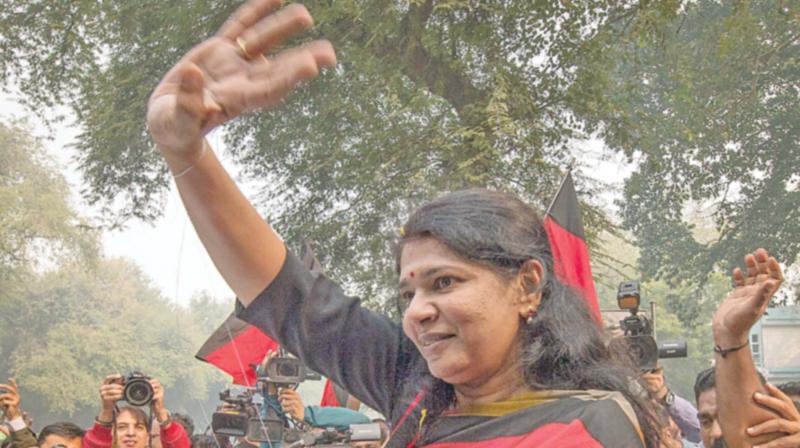Raging against graft not enough to end it

Middle-class moralists hate corruption in politics more than corruption itself, and more than other social evils like communalism, casteism and even peccadilloes. That is why, when special court judge O.P. Saini in New Delhi threw out the Central Bureau of Investigation against former telecommunications minister A. Raja and DMK MP Kanimozhi in the 2G spectrum allocation case, there was loud lamentation from secular pulpits that Indian judiciary has sunk to its lowest depths. When special court judge Shivnath Singh in Ranchi held former Bihar chief minister Lalu Prasad Yadav convicted in the fodder scam, there was a sigh of relief among the Pharisees that there is hope for justice and that the corrupt are getting their just desserts. The conviction of former Jharkhand chief minister Madhu Koda and Union coal secretary H.K. Gupta for corruption in the coal block allotments case did not draw much attention because Mr Koda is not a high-profile politician, and the moralistic chatterati are not provoked by cases of corruption when insignificant politicians are involved.
It is because of this selective targeting of the corrupt that corruption continues to flourish in the country, and there is no serious concern about how it is harming the development of the economy apart from making India into an exemplary Third World country where in a sea of poverty, corrupt and rich politicians, bureaucrats and businessmen flourish. Not many of the righteous souls are serious enough to ask some hard questions about corruption or of the ways to deal with. The moment the man accused of corruption is metaphorically burnt at the sake, and it has to be a big politician and no less, their lust for justice is assuaged and they sink back into political somnolence until the next big man/woman accused of corruption is brought into the public arena, and bloody inquisition begins yet again.
The moral brigade has little patience with legalities when judging corruption. They do not think it is necessary that corruption cases should follow legal procedures and they do not entertain the possibility that a wrong person could be hauled up for corruption and there is need to protect the innocent. They do not even pause to consider that a corrupt politician is being convicted on a false charge and that it is necessary to nail him for the many acts of corruption he committed rather than for the many he did not commit. They think that anyone wanting evidence of corruption is siding with the devil. All they want is justice, that is, they want punishment to be delivered to those accused of corruption. The anti-corruption fanatics have the mentality of a lynch mob. They scream for blood and justice.
Anti-corruption zealots like Anna Hazare and his former acolytes like Delhi chief minister Arvind Kejriwal are also focused on the big game. They too are keen to bring down the big leaders, and not the corrupt hoi polloi. But the outrage against corruption in high places is not the preserve of morality brigade of mavericks. The political parties and the Bharatiya Janata Party in particular, have ridden this moral hobbyhorse of anti-corruption to shoot down the Congress Party when it was in power. It seemed to BJP strategists and others that one of easier ways to blacken the name of a government is to bring up corruption charges. Let it be admitted straightaway that not all of them are trumped up. Parties like the Congress, which have been in power longer than others, have been prone to corruption to an exceptionally high degree. So corruption is a good stick to beat the political opponents. Most of the time then, corruption turns around political games, as to who is winning and who is losing. In the 2G spectrum allocation case as well as the fodder scam case against Lalu Yadav, the BJP has sought political advantage and it has also gained it.
It is indeed legitimate political strategy on the part of the BJP to make a case against corrupt politicians in other parties; the prevalence of corruption remains a major problem despite the setting up of the much-vaunted Lokpal at the Centre and Lokayukta in states. The common man’s woes with corruption in the government at lower levels go unheeded.
In all this din surrounding corruption cases involving politicians in high places, the loud thinking of finance minister Arun Jaitley for the last two years about the need to introduce an amendment in the Prevention of Corruption Act 1988, which would protect the honest bureaucrat when he takes a decision in good faith and it results in loss to public exchequer is drowned out. It is nice and exciting to hunt for the corrupt in furrows and warrens of the government, but it is necessary to keep the system running and allow decisions to be made.
It is time to understand the reasons as to why corruption arises in the first place to contain it and to root it out. Corruption has disappeared in getting cooking gas cylinders, telephones, cars and railway tickets because throwing open the system has helped remove the potential for corruption. Can a similar algorithm be worked out for checking corruption in other spheres of governance, as in the grant of industrial licences, allocation of spectrum and mines and getting a government job? Is corruption a larger issue than settling of political scores between rivals? To rage against corruption is good political theatre but it is not enough to check it.

